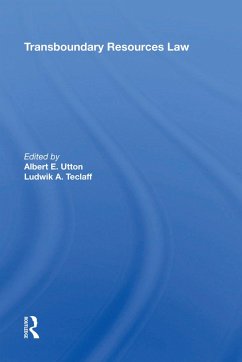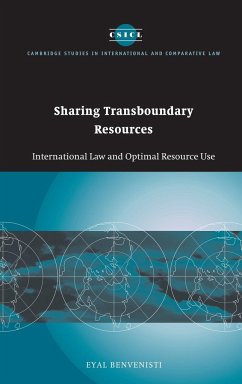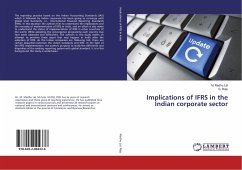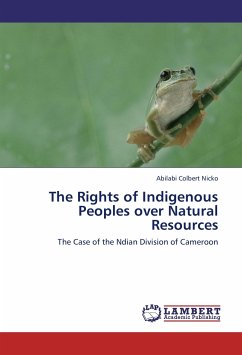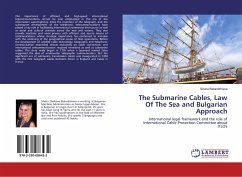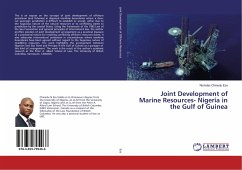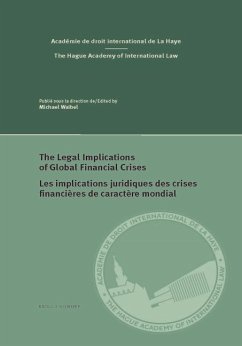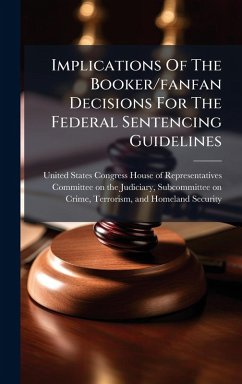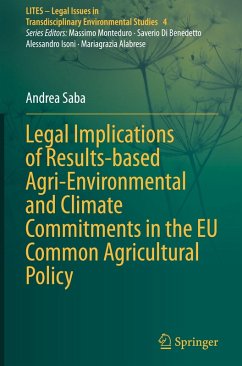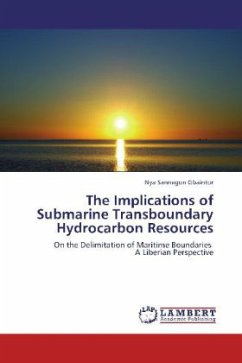
The Implications of Submarine Transboundary Hydrocarbon Resources
On the Delimitation of Maritime Boundaries A Liberian Perspective
Versandkostenfrei!
Versandfertig in 6-10 Tagen
32,99 €
inkl. MwSt.

PAYBACK Punkte
16 °P sammeln!
Maritime boundary delimitation is the process by which neighboring coastal States establish boundary lines between themselves in contested maritime spaces. Over the years, maritime boundary delimitation has become an important field of international law, primarily because States have increasingly claimed larger sea areas as part of their national maritime zones. The competing claims of neighboring States have necessitated the establishment of defined maritime boundaries. Often, these claims are influence by a State s desire to exploit the resources found in these maritime zones. Two of the mos...
Maritime boundary delimitation is the process by which neighboring coastal States establish boundary lines between themselves in contested maritime spaces. Over the years, maritime boundary delimitation has become an important field of international law, primarily because States have increasingly claimed larger sea areas as part of their national maritime zones. The competing claims of neighboring States have necessitated the establishment of defined maritime boundaries. Often, these claims are influence by a State s desire to exploit the resources found in these maritime zones. Two of the most important resources that may influence a State s claim(s) are fisheries and hydrocarbon resources. With the recent discoveries of hydrocarbon deposits in the Gulf of Guinea, States in the region have realized the importance of delimiting their maritime boundaries. The focus of this work is to examine what legal implications, if any, does the existence of submarine transboundary hydrocarbonresources have on the process and law of delimitation of maritime boundaries by States. This focus is approached from the perspective of Liberia s desire to delimit her maritime boundaries.



